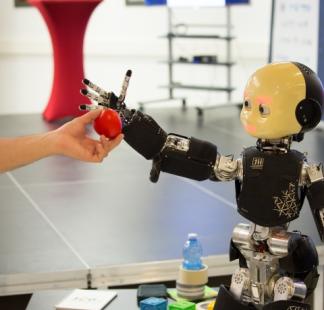Displaying 121 - 131 of 131
12 Oct 2026 - 25 Oct 2026
Online instructor led
Digital technologies are transforming societies and economies worldwide. This course covers the key emerging technologies in the digital future. This…
Registration:
Open until 10 Oct 2026
Languages:
- English
12 Oct 2026 - 16 Oct 2026
Face to Face
Telecommunications is evolving fast with 5G, 6G, massive IoT, cloud-native architectures, and open networks. These advances unlock new opportunities…
Registration:
Open until 14 Jun 2026
Languages:
- English
Open
Online self-paced
The “Monitoring & Evaluation of Early Warnings for All” (EW4ALL) online self-paced course is developed in alignment with the global goal set…
Languages:
- English
19 Oct 2026 - 30 Oct 2026
Online instructor led
This advanced training course equips participants with in-depth knowledge of how Multi-Global Navigation Satellite Systems (GNSS) Constellation…
Registration:
Open until 10 Oct 2026
Languages:
- English
30 Oct 2026 - 17 Dec 2026
Online instructor led
Rapid development of digital technologies provides new opportunities for public policy. Technologies such as artificial intelligence, e-government…
Registration:
Open until 11 Oct 2026
Languages:
- English
Open
Online self-paced
Reliable, secure data-hosting solutions are becoming increasingly important to support everyday functions across societies. Although data…
Languages:
- English
04 Nov 2026 - 07 Nov 2026
Online instructor led
This course focuses on enhancing the protection and cyber resilience of Critical Information Infrastructures (CII). These include essential assets,…
Registration:
Open until 19 Oct 2026
Languages:
- English
24 Nov 2026 - 26 Nov 2026
Online instructor led
The course, “Ubiquitous Connectivity: Integration of Non-Terrestrial Networks (NTN) with Terrestrial Networks” is structured to provide participants…
Registration:
Open until 20 Oct 2026
Languages:
- English
01 Feb 2026 - 31 Dec 2026
Online self-paced
This online course offers a comprehensive examination of the intersection between Environmental, Social, and Governance factors within the realm of…
Languages:
- English
30 Nov 2026 - 07 Dec 2026
Online instructor led
This course focuses on technical, business and regulatory aspects of Artificial Intelligence (AI) and Metaverse for future Internet and telecoms. It…
Registration:
Open until 29 Nov 2026
Languages:
- English








